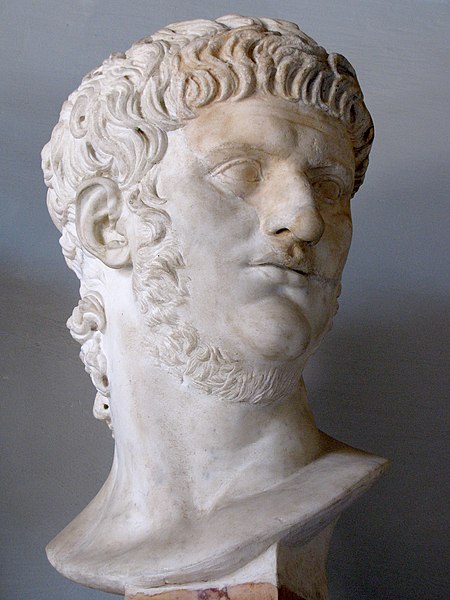ἐπιορκία, ἡ: perjury
ἐπίορκος, ὁ: Perjurer
ἐπιορκέω: to commit perjury
ψευδορκεῖν: to make a false oath
Plato, Republic 334b (referring to Od. 19.395)
“He bested all men in theft and perjury.”
αὐτὸν πάντας ἀνθρώπους κεκάσθαι κλεπτοσύνῃ θ’ ὅρκῳ τε.
Thales (according to Diogenes Laertius)
“Isn’t perjury worse than adultery?”
οὐ χεῖρον, ἔφη, μοιχείας ἐπιορκία
Plautus, Curculio 470
“Whoever wants to find a perjurer should go to the public assembly”
qui periurum conuenire uolt hominem ito in comitium
Cicero, De legibus II.22
“For perjury the divine punishment is destruction, the human punishment is shame”
Periurii poena divina exitium, humana dedecus.
Lucan 4.218-226
“Must we beg Caesar to handle us no worse than
His other slaves? Have your generals’ lives been begged?
Our safety will never be the price and bribe for foul treason.
This is not a civil war they fight for us to live.
We are dragged this way under the claims of peace.
People would not search for iron in a deep mine,
They would not strengthen any city with walls,
No fierce steed would rush to war,
No sea would bear towered ships of the fleet,
If it were ever just to trade freedom for peace.”
Utque habeat famulos nullo discrimine Caesar,
Exorandus erit? ducibus quoque vita petita est?
Numquam nostra salus pretium mercesque nefandae
Proditionis erit; non hoc civilia bella,
Ut vivamus, agunt. Trahimur sub nomine pacis.
Non chalybem gentes penitus fugiente metallo
Eruerent, nulli vallarent oppida muri,
Non sonipes in bella ferox, non iret in aequor
Turrigeras classis pelago sparsura carinas
Si bene libertas umquam pro pace daretur
From the Twelve Tables
“The Law of the Twelve Tables commands that anyone who has conspired with an enemy against the state or handed a citizen to a public enemy, should suffer capital punishment.”
Marcianus, ap. Dig., XLVIII, 4, 3: Lex XII Tabularum iubet eum qui hostem concitaverit quive civem hosti tradiderit capite puniri.
Tacitus Histories 3. 57
“How much power the audacity of single individuals can have during civil discord! Claudius Flaventinus, a centurion dismissed by Galba in shame, made the fleet at Misenum revolt with forged letters from Vespasian promising a reward for treason. Claudius Apollinaris, a man neither exceptional for his loyalty nor dedicated in his betrayal, was in charge of the fleet; and Apinius Tiro, an ex-praetor who was by chance at Minturnae then, put himself forth as the leader of the defectors.”
Sed classem Misenensem (tantum civilibus discordiis etiam singulorum audacia valet) Claudius Faventinus centurio per ignominiam a Galba dimissus ad defectionem traxit, fictis Vespasiani epistulis pretium proditionis ostentans. Praeerat classi Claudius Apollinaris, neque fidei constans neque strenuus in perfidia; et Apinius Tiro praetura functus ac tum forte Minturnis agens ducem se defectoribus obtulit.

Some Greek Words for Treason
ἀπιστία, “treachery”
προδοσία, “high treason”, “betrayal”
προδότης “traitor”
ἐπιβουλή, “plot”
From the Suda
“Dêmadês: He was king in Thebes after Antipater. A son of Dêmeas the sailor, he was also a sailor, a shipbuilder, and a ferry-operator. He gave up these occupations to enter politics and turned out to be a traitor—he grew very wealthy from this and obtained, as a bribe from Philip, property in Boiotia.”
Δημάδης, μετ’ ᾿Αντίπατρον βασιλεύσας Θήβας ἀνέστησε, Δημέου ναύτου, ναύτης καὶ αὐτός, ναυπηγὸς καὶ πορθμεύς. ἀποστὰς δὲ τούτων ἐπολιτεύσατο καὶ ἦν προδότης καὶ ἐκ τούτου εὔπορος παντὸς καὶ κτήματα ἐν Βοιωτίᾳ παρὰ Φιλίππου δωρεὰν ἔλαβεν.
Euripides’ Orestes 1057-1060
[Elektra] Did he not speak for you, eager that you not die,
Menelaos the coward, our father’s traitor?
[Orestes] He didn’t show his face, because he yearning
For the scepter—he was careful not to save his relatives
Ηλ. οὐδ’ εἶφ’ ὑπὲρ σοῦ μὴ θανεῖν σπουδὴν ἔχων
Μενέλαος ὁ κακός, ὁ προδότης τοὐμοῦ πατρός;
Ορ. οὐδ’ ὄμμ’ ἔδειξεν, ἀλλ’ ἐπὶ σκήπτροις ἔχων
τὴν ἐλπίδ’ ηὐλαβεῖτο μὴ σώιζειν φίλους.
Dinarchus, Against Philocles, 8-9
“Don’t you understand that while, in other cases, it is necessary to impose a penalty on those who have committed crimes after examining the matter precisely and uncovering the truth over time, but for instances of clear and agreed-upon treason, we must yield first to anger and what comes from it? Don’t you think that this man would betray any of the things most crucial to the state, once you made him in charge of it?”
ἆρ᾿ ἴσθ᾿ ὅτι ἐπὶ μὲν τῶν ἄλλων ἀδικημάτων σκεψαμένους ἀκριβῶς δεῖ μεθ᾿ ἡσυχίας καὶ τἀληθὲς ἐξετάσαντας, οὕτως ἐπιτιθέναι τοῖς ἠδικηκόσι τὴν τιμωρίαν, ἐπὶ δὲ ταῖς φανεραῖς καὶ παρὰ πάντων ὡμολογημέναις προδοσίαις πρώτην5 τετάχθαι τὴν ὀργὴν καὶ τὴν μετ᾿ αὐτῆς6 γιγνομένην τιμωρίαν; τί γὰρ τοῦτον οὐκ ἂν οἴεσθε ἀποδόσθαι τῶν ἐν τῇ πόλει σπουδαιοτάτων, ὅταν ὑμεῖς ὡς πιστὸν αὐτὸν καὶ δίκαιον φύλακα καταστήσητε;
Lycurgus, Against Leocrates, 126-7
“It is right that punishments for other crimes come after them, but punishment for treason should precede the dissolution of the state. If you miss that opportune moment when those men are about to do something treacherous against their state, it is not possible for you to obtain justice from the men who did wrong: for they become stronger than the punishment possible from those who have been wronged.”
τῶν μὲν γὰρ ἄλλων ἀδικημάτων ὑστέρας δεῖ τετάχθαι τὰς τιμωρίας, προδοσίας δὲ καὶ δήμου καταλύσεως προτέρας. εἰ γὰρ προήσεσθε τοῦτον τὸν καιρὸν, ἐν ᾧ μέλλουσιν ἐκεῖνοι κατὰ τῆς πατρίδος φαῦλόν τι πράττειν, οὐκ ἔστιν ὑμῖν μετὰ ταῦτα δίκην παρ’ αὐτῶν ἀδικούντων λαβεῖν· κρείττους γὰρ ἤδη γίγνονται τῆς παρὰ τῶν ἀδικουμένων τιμωρίας.

Like this:
Like Loading...








